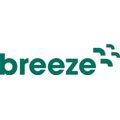🌎Travel the world with TravelKon eSIM📱. Fast & Convenient⚡. Embrace seamless connectivity and incredible value💰. Your journey, our priority – Exceptional Customer Service at every step!😊 TravelKon - Travel Connected.

🌎Travel the world with TravelKon eSIM📱. Fast & Convenient⚡. Embrace seamless connectivity and incredible value💰. Your journey, our priority – Exceptional Customer Service at every step!😊 TravelKon - Travel Connected.
TravelKon eSIM Data Plans for United Arab Emirates
Frequently Asked Questions
Does TravelKon offer unlimited data eSIM for United Arab Emirates?
TravelKon does not provide an unlimited data eSIM for the United Arab Emirates. All of its UAE offerings are fixed‑data plans, with allowances of 10GB, 20GB or 30GB, each valid for 30 days. Travelers can choose a plan that best fits their data needs; larger data allowances may offer better value for those who use a lot of mobile bandwidth, but an unlimited option is not available through TravelKon in this destination.
Does TravelKon offer United Arab Emirates eSIM with phone number and SMS?
TravelKon offers an eSIM plan for United Arab Emirates that includes a phone number and SMS capability. The Orange Global Explorer eSI (Zone 1) plan provides 20 GB of data for 30 days and is priced at $42.01 USD. The phone number carried on the plan uses the French dialing code +33, so it is not a local UAE number. The telephony features allow both inbound and outbound voice calls and inbound and outbound SMS messages. Travelers who need specific local number or different calling rules should verify details directly with TravelKon.
How many data plans does TravelKon offer for United Arab Emirates?
TravelKon offers six single‑country data plans and six multi‑country plans that include coverage in the United Arab Emirates. The available options span a price range from roughly $6.41 to $60.52, with data caps varying between 1 GB and 30 GB. Validity periods for the plans are between 7 and 30 days, allowing travelers to pick a duration that fits their itinerary.
Summarized by Gen AI. Last updated:




